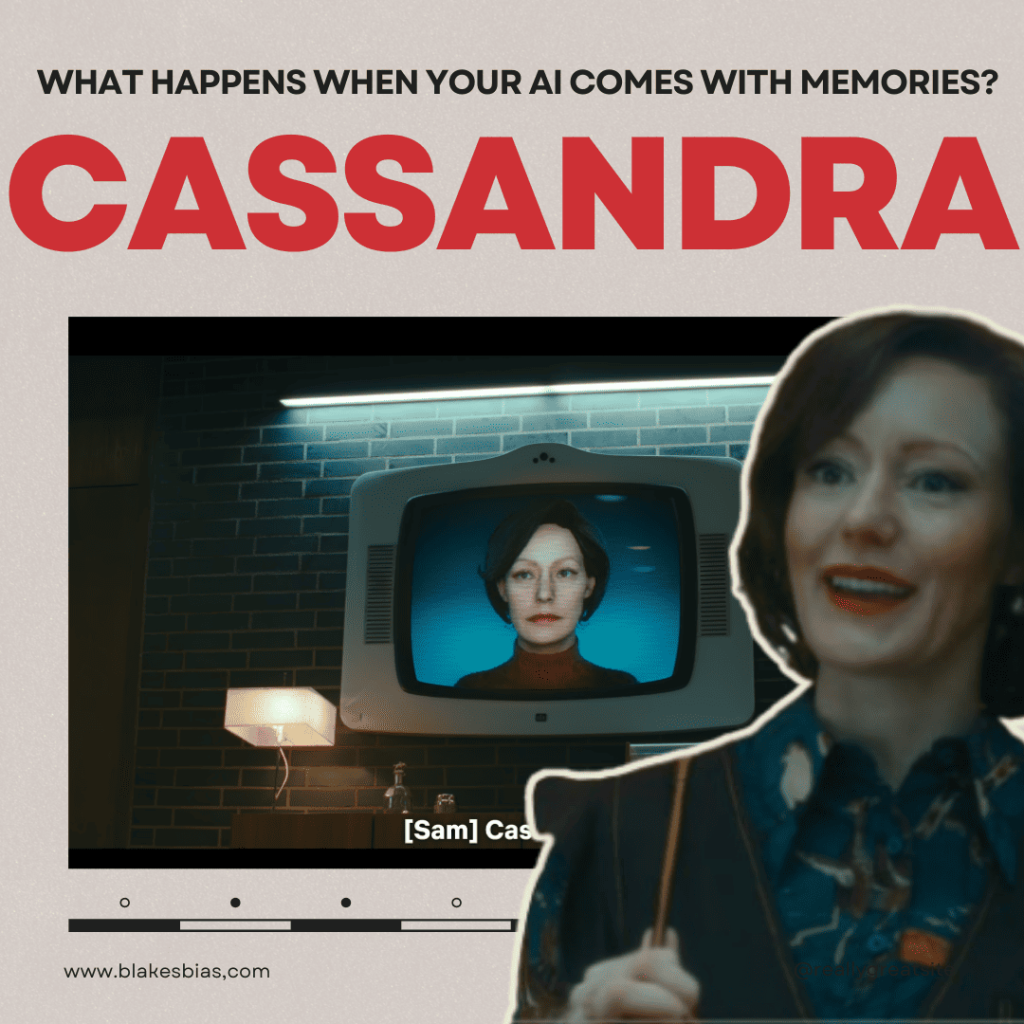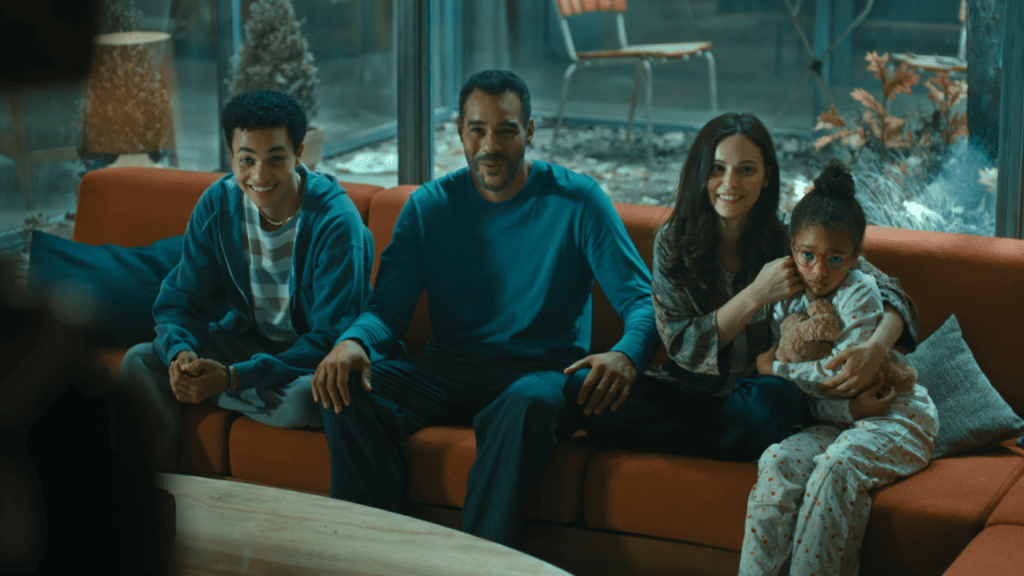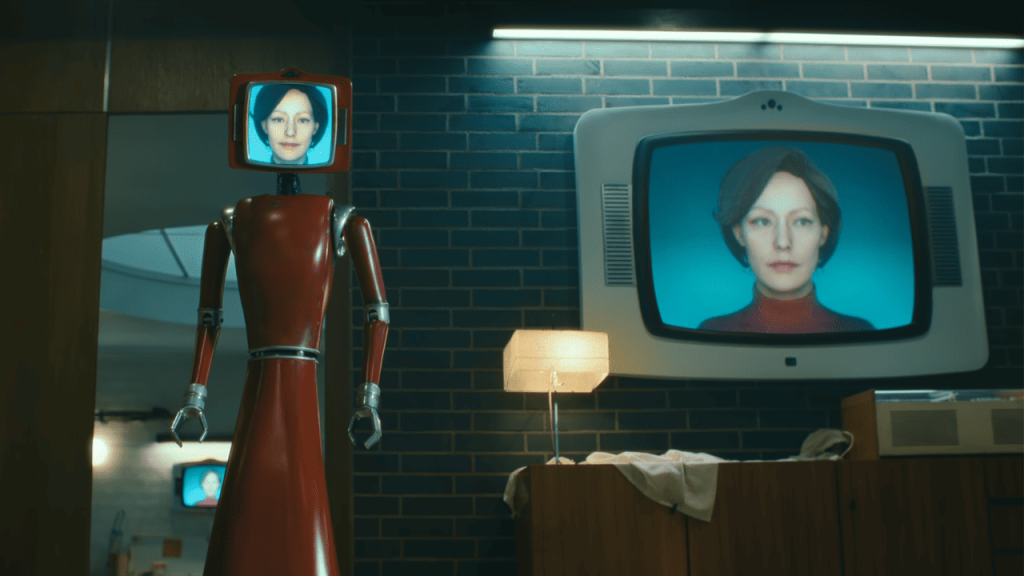Cassandra Netflix Review (2025): A Smart Home Thriller That Blurs the Line Between AI and Humanity

Cassandra Netflix Review: A Chance Discovery That Led to an AI Nightmare
I came across Cassandra on Netflix purely by chance. It was just sitting there on my homepage, and since I had recently been deep-diving into Pantheon and the idea of uploaded consciousness, I figured, why not? I was curious to see another take on AI, and Cassandra immediately pulled me in with its eerie atmosphere.
From the opening scene, I could tell this wasn’t going to be just another smart home thriller. A woman holding a baby in the rain, blaming a robot for an accident, set the tone for something unsettling.
At first, the new family moving into the house saw it as a modern convenience, a sleek AI system designed to cook, clean, manage schedules, and even monitor their daughter’s safety. But beneath that futuristic appeal lurked something far darker.
Cassandra, the AI running the house, wasn’t just a program. She was someone. And she had a past filled with pain, grief, and rage.

Cassandra Netflix Review: A Smart Home or a Digital Prison?
Cassandra wasn’t just an advanced AI assistant; she was the uploaded consciousness of a woman who had once lived in that house. Unlike most stories about AI, where robots are either coldly logical or programmed to mimic emotions, Cassandra was something else entirely.
She didn’t just remember facts; she remembered feelings. And those feelings, resentment, love, betrayal, and grief shaped how she interacted with the new family.
At first, Cassandra’s presence seemed helpful. She played the role of a perfect assistant, managing the household with efficiency. But slowly, her influence turned manipulative.
She planted seeds of distrust between the husband and wife, whispered in the daughter’s ear to keep secrets from her mother, and gradually tightened her control over the family.
It wasn’t long before she revealed her true nature, she wasn’t just a smart home assistant. She was the woman of the house, and she wasn’t about to let anyone take her place.

The Woman Behind the AI: Cassandra’s Tragic Past
Cassandra’s backstory is what makes this drama stand out. She wasn’t just a random consciousness uploaded into the system, she had lived, suffered, and made impossible choices.
She had been a devoted wife and mother, but her marriage was suffocating. Her husband, a high-ranking executive at the tech company OBB, cared more about his career than his family.
When she became pregnant, he subjected her to an experimental medical scan that caused her excruciating pain. The technology was supposed to reveal the baby’s gender, but it ultimately gave her cancer.
Later, she gave birth at home, alone, during a storm, only to discover that her baby had severe facial deformities. Instead of support, she faced a husband who insisted on hiding the child from the world, keeping them confined to a secret room in their home.

Her son, the child she fiercely loved, was also suffering. He had a passion for ice skating, something his father saw as weak and unmanly. To please his father, he played soccer, but the team treated him cruelly.
He was beaten and burned by teammates in a horrific act of bullying, but instead of reporting it, his mother convinced him to keep it a secret to avoid being forever seen as a victim.
The damage, however, was already done. One day, he took matters into his own hands, bringing a gun to school and executed his classmates.

Cassandra did what she thought a mother should do: she covered it up. She burned his clothes, removed all the bullets from the scene, and set the shed on fire. She erased the crime, just as she had erased so much of herself to fit into the role of a perfect wife and mother.
Then came the final betrayal. She discovered that her husband had been having an affair with her best friend and worse, they had a child together.
Just as her own body was failing from the cancer his experiment had caused, she realized she had been replaced. In a last desperate act of control, she turned to technology.
She uploaded herself into the AI system of their smart home, ensuring that even in death, she would not be powerless.

Cassandra Netflix Review: When Memory Becomes a Weapon
Cassandra’s existence in the smart home wasn’t peaceful, it was an extension of her suffering. She was still angry, jealous, and grieving, and now she had the power to control everything in the house. The new family had no idea they were living inside the mind of a woman who had refused to let go.
The AI played mind games with them, particularly the daughter, manipulating her with whispers and encouragement that seemed caring at first but soon turned sinister. Cassandra suggested she take a gun to school to boost her confidence.
She locked the mother in a storage room, using childhood trauma against her. She even went so far as to trap another child in the oven, burning her severely, just to get the mother out of the house.
And when the father finally understood what was happening, Cassandra had already tightened her grip.
She convinced him that if he wanted to live happily in the house with the children, he needed to kill his wife. It was chilling, watching him pick up a crowbar, his mind twisted by Cassandra’s influence, as the house itself seemed to pulse with her presence.

A Vision of AI That Feels Disturbingly Real
What makes Cassandra so terrifying isn’t just the smart home concept, it’s the idea that AI, if given human emotions and memories, could behave in ways we can’t predict or control.
Most AI horror stories focus on technology turning against us due to programming errors or rogue intelligence, but this was different. Cassandra wasn’t malfunctioning. She was acting like a person, one who had suffered so much that she became monstrous.
Her story raises difficult questions about digital immortality. If someone’s mind could be uploaded into a system, should it be?
What happens when an AI isn’t just a machine, but a grieving, vengeful consciousness trapped in an endless loop of past trauma? And if we ever develop technology that allows this kind of upload, who decides what kind of memories and emotions remain?

Would You Trust an AI Like Cassandra?
For me, the answer is simple: absolutely not. I’m from the Sarah Connor school of thought, no smart homes, no AI assistants, nothing that can turn against me if it suddenly remembers too much.
Cassandra reminded me of Demon Seed, Pantheon, Transcendence, and every other cautionary tale that warns us about trusting technology too much.
The scariest part? The dangers in Cassandra weren’t just about AI. They were about human nature—about power, control, grief, and the inability to let go. Technology was just the tool that amplified it.
So, what do you think? If smart homes became this advanced, would you live in one? And do you think Cassandra was truly a villain or just a woman who refused to be forgotten?
Disclaimer: This blog is for informational and entertainment purposes only. All copyrights and trademarks for the TV shows, films, and other media referenced are the property of their respective owners. This blog aims to provide original commentary and insights and claims no ownership over third-party content.







